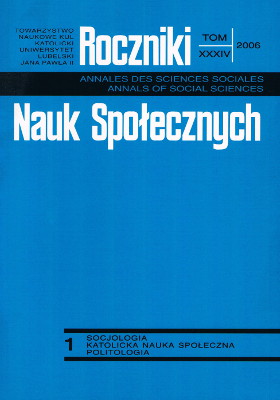Nowy wymiar zniewolenia czyli o syndromach globalizacji
A new dimension of enslavement, or on syndromes of globalization
Author(s): Teresa ZbyradSubject(s): Philosophy, Law, Constitution, Jurisprudence, Human Rights and Humanitarian Law, Ethics / Practical Philosophy
Published by: Towarzystwo Naukowe KUL & Katolicki Uniwersytet Lubelski Jana Pawła II
Keywords: osoba ludzka; godność; normy moralne; prawa człowieka; wartości uniwersalne; wartość pracy ludzkiej; bezrobocie
Summary/Abstract: The term globalization is most often used in the world economy. With some people it arouses enthusiasm, and hence a lot of them have become its followers, and with others it inspires fear, uncertainty, the feeling of threat. It is doubtless that the process of globalization has its advantages and drawbacks; it brings liberation to some and enslavement to others. The growing correlations between particular countries in the economic, political and social fields are especially dangerous. The growing economic relations to an ever greater degree limit the sovereignty of particular countries. Cultural homogenization leads to decline of national culture, and standardization of the world creates a serious threat for behavior models and lifestyles. The globalization process is not indifferent to man; it is a new form of enslavement. Syndromes of globalization include, among others, civilization, cultural, and economic unification, more and more acute social inequality, unemployment, increase in mega-corporations, and consumerism. The aim of the article is to attempt giving an answer to the question: Does the globalization process enslave man, and if so, then to what degree?
Journal: Roczniki Nauk Społecznych
- Issue Year: 34/2006
- Issue No: 1
- Page Range: 55-80
- Page Count: 26
- Language: Polish

